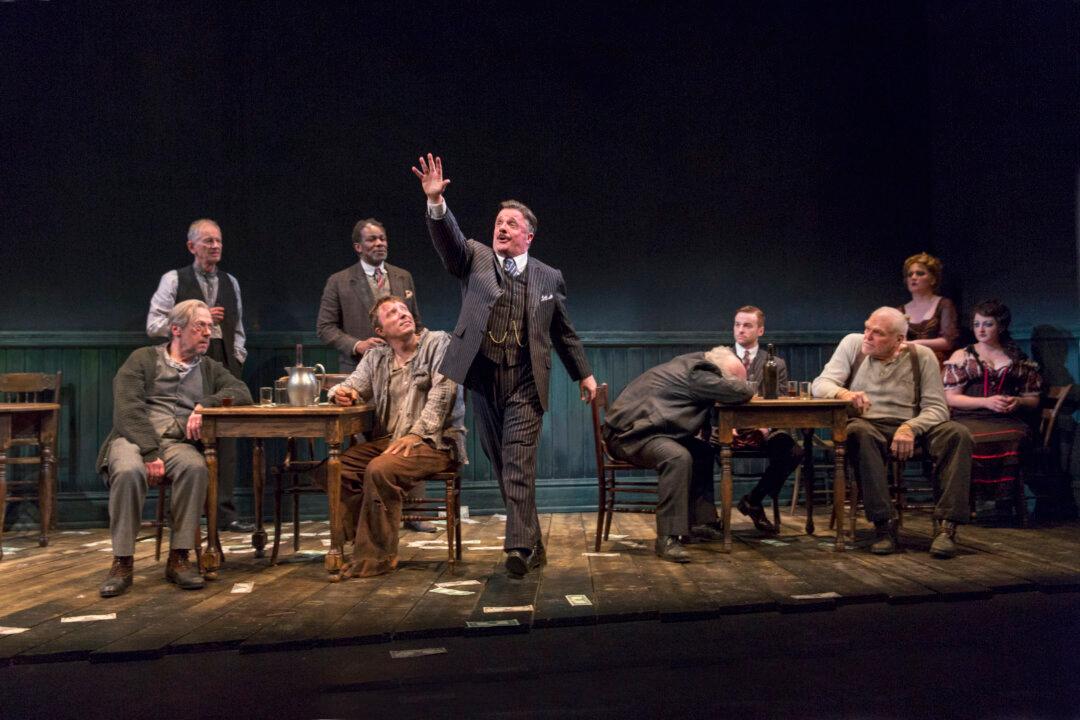NEW YORK—A few minutes into Eugene O'Neill’s “The Iceman Cometh,” now at the Brooklyn Academy of Music, it becomes apparent the figures onstage comprise some of the most pathetic people ever seen.
Director Robert Falls and a stellar cast led by Nathan Lane and Brian Dennehy present a brilliant production of lost souls clinging to illusions found in a bottle, with one man determined to lead them into reality’s cold embrace.
The story takes place in a New York saloon owned by the ironically named Harry Hope (Stephen Ouimette), a man who hasn’t left the building since his wife’s funeral 20 years earlier. Harry, like everyone else who has made the bar their home, clings to the idea of changing his life “tomorrow.” All the while he takes comfort in being perennially drunk.
Among the other residents, all of whom live in rooms upstairs, is Larry Slade (Dennehy), a former anarchist, now disillusioned and simply waiting to die. Yet Larry’s wish to be left alone is stymied by the sudden appearance of Don Parritt (Patrick Andrews)—another name with an ironic twist—the son of a woman Larry knew in his former life.






